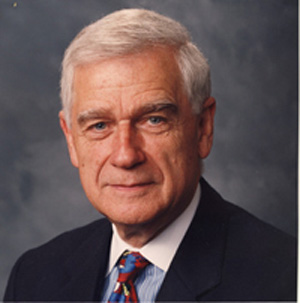seminaries
“WE'RE NOT HERE to seduce you,” I said.
The laughter signaled that my comment had pushed a boundary but not broken it. When the moderator at my evangelical seminary’s student orientation asked about friendships between men and women on campus, I answered honestly. I wanted to be viewed as a student, not a threat.
Women seminarians, regardless of where we study, navigate a world not made for us. Many of us study in institutions with long histories of denying our admission, read from syllabi devoid of women scholars, and study under professors who merely tolerate our presence. My own seminary first admitted women as full students in 1975 and into all degree programs in 1986.
What was most telling about the disagreement between the two men was their discussion of Luke 4. Mohler argued the passage should be understood in light of how he interpreted the preaching and teaching of Paul and the other apostles. This means that when Jesus said that he came to bring good news to the poor that good news was personal salvation.
Wallis argued that yes, personal salvation is one part of that good news, but that the other part is the Kingdom of God breaking into the world and transforming societal relationships as well. When the Gospel is proclaimed, it is good news for a poor person's entire being, community and world -- not just his or her soul.
First, it was encouraging to hear Mohler spend a lot of time emphasizing that working for justice is essential to fulfillment of the Great Commission. Throughout the night he repeated his concern that a lot of Churches are REALLY bad at making disciples who actually do the things Jesus told us to do. As the president of one of the largest seminaries in the world, it will be interesting to see if he is able to train a generation of pastors who will do things differently. My concern is that he is missing the connection between his theology and the failure of Christians to actually do justice.
 Mark O. Hatfield's political witness shaped a whole generation of students, teachers, pastors, and social activists in the evangelical community and beyond. The voice of Christians today who plead for social justice and peaceful alternatives to war would not have emerged with its strength and clarity in the 1970s without his leadership. His death underscores the vacuum of such spiritually rooted voices uncompromising in their commitments to peace and justice within the cacophony political rhetoric today.
Mark O. Hatfield's political witness shaped a whole generation of students, teachers, pastors, and social activists in the evangelical community and beyond. The voice of Christians today who plead for social justice and peaceful alternatives to war would not have emerged with its strength and clarity in the 1970s without his leadership. His death underscores the vacuum of such spiritually rooted voices uncompromising in their commitments to peace and justice within the cacophony political rhetoric today.
One of my life's greatest privileges and joys was to work as an assistant to Senator Mark O. Hatfield for nearly a decade, from 1968 to 1977. I saw first-hand what courageous leadership, combined with unswerving compassion and civility, looked like within the political life of that turbulent and formative era. Those experiences are shared in my book, Unexpected Destinations (Eerdmans).
In Half the Sky, Pulitzer Prize-winning authors Kristof and WuDunn document the global exploitation of women an abuse to which we have become indifferent.
Throughout history, individuals and institutions have cited the Bible to support injustices, such as "holy war" against infidels, the subjection of women, racism and slavery, and the abuse of homos
